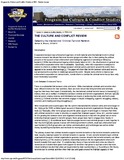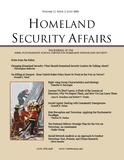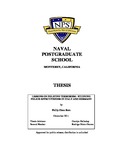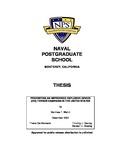Defeating the International Criminal-Terrorist Network
| dc.contributor.author | Minami, Nathan A. | |
| dc.date | 10/1/2010 | |
| dc.date.accessioned | 2013-01-28T17:22:06Z | |
| dc.date.available | 2013-01-28T17:22:06Z | |
| dc.date.issued | 2010-10-01 | |
| dc.identifier.citation | Culture and Conflict Review (Fall 2010), v.4 no.3 | |
| dc.identifier.uri | https://hdl.handle.net/10945/27363 | |
| dc.description | This article was published in Culture and Conflict Review (Fall 2010), v.4 no.3 | en_US |
| dc.description.abstract | "Cooperation between law enforcement agencies on both national and international levels is critical because research has shown that most terrorist groups end either due to them joining the political process or the success of law enforcement and intelligence agencies in arresting or killing key leaders. While law enforcement agency efforts clearly failed on 9/11, the effectiveness of general law enforcement cooperation since then is debatable. Specifically, when this cooperation is analyzed in relation to efforts to combat the linkage between criminal activity and terror around the world, there appears to be several shortcomings. This paper will show that the link between crime and terror is real and presents a number of challenges around the world. Despite some efforts to improve law enforcement cooperation on various levels, overall efforts to combat the criminal-terror nexus have only been moderately successful." | en_US |
| dc.publisher | Naval Postgraduate School (U.S.) | en_US |
| dc.publisher | Program for Culture and Conflict Studies | en_US |
| dc.rights | This publication is a work of the U.S. Government as defined in Title 17, United States Code, Section 101. Copyright protection is not available for this work in the United States. | en_US |
| dc.title | Defeating the International Criminal-Terrorist Network | en_US |
| dc.contributor.corporate | Program for Culture & Conflict Studies |





